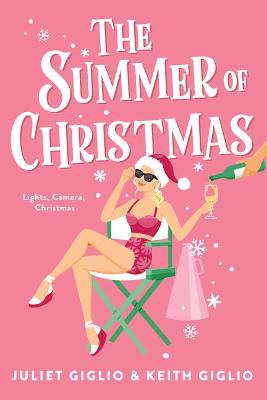I loved the premise of the story, that Ivy wrote a script for a movie based on her now-over love story with her high school sweetheart. It’s a Hallmark movie come to life. But making the moving comes with an unexpected twist… the powers that be have decided to film it in her hometown. And that’s a place she’s avoided since the demise of her relationship with Nick five years ago. Seeing him again was not in her plans.
The book is set not far from my hometown, which added another layer for me. I wanted to love it. And I did enjoy it, just not as much as I’d hoped.
For me, the POV was a big part of that. Some of it was omniscent, the overarching third-person narrative that knows all. Other times, that third-person narrative felt very narrow, very limited. It got quite confusing at times.
There were things I loved and things I didn’t love about the characters, too. Ivy and Nick seemed to spend more time living in the past than figuring out their presents and futures. I understand there’s going to be some going back in time when confronting an old love, but it seemed to be much more than that. It often felt as if they both regressed in age when they were around each other. They couldn’t move forward, couldn’t see what was in front of them. They spent much of the book going back and forth about what they wanted.
Despite that, I loved Ivy. She deserved better than she got from Nick, Drew, and Amari. I hated the way she was made to debase herself on the set of her movie. I also enjoyed the supporting cast. My only real critcism there was with Griffin’s arc. It felt significant when it was introduced, but nothing really came of it. It felt very much as if it was just the ticking off of an item on a list of things to include.
I hoped that it would all come together with the end. And it did, just not in a way that felt fitting for the story. It felt like another example of their inability to figure out what they wanted on their own.
The authors are screenwriters on some rather popular movies. That’s a very different style of writing from novel writing. I felt the same way about Chbosky’s The Perks of Being a Wallflower. In a movie, one doesn’t have to imagine the characters and their emotions. One sees it on the screen, sees the body language, the facial expressions. But a book makes a reader do that for themselves. Much of the book would probably be great on a screen, a movie I’d want to see. On the pages, it felt like there were some disconnects, some blanks that needed to be filled in.
I did like it. I just didn’t love it.
